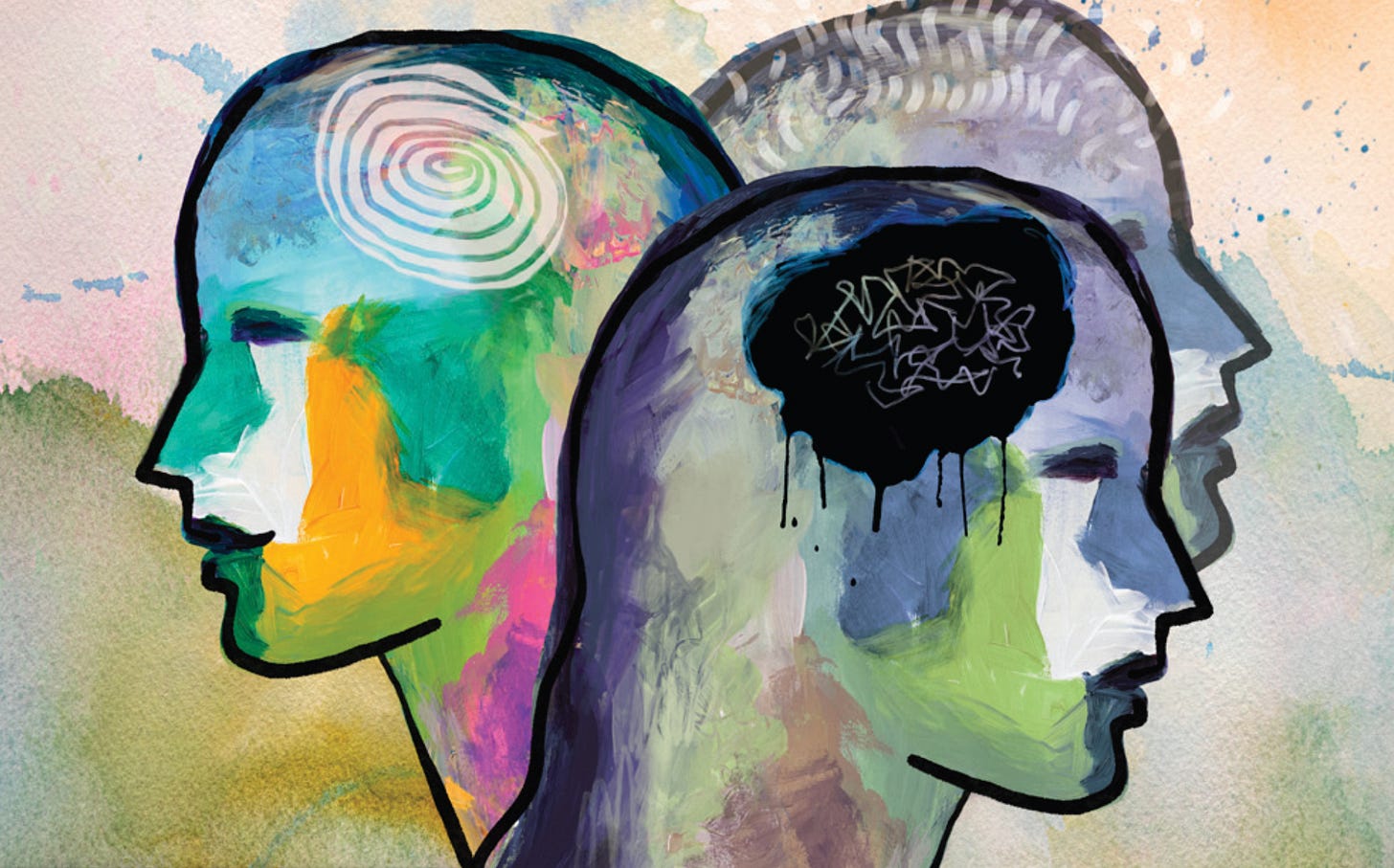Mental Health: Pill Pushing?
How did we go from a few people in mental hospitals to 16.5% of the population on mental health medications?
According to the World Health Organization, “Mental health is a state of mental well-being that enables people to cope with the stresses of life, realize their abilities, learn well and work well, and contribute to their community.”
This definition sounds a little like word soup. Yes, some people are mentally disabled and until about 45 years ago, most of these people were kept in mental hospitals. Then in 1981, President Reagan closed these hospitals and these people were given medications and released into society. Beyond this small group, most people at that time were well equipped to function in society. Of course there were ups and downs to life, but most people could navigate things quite well on their own.
One has to wonder why we have such an elaborate definition of mental health today. Was it because we normalized mental disabilities? Was it because we moved from more personalized medicine to more definition based medicine? Was it because of a marketing push? Something else?
Perhaps it was a combination of things. Beginning in the 1970s, medicine began to change rapidly. We gradually (and then more rapidly) developed a wide array of tests that could be used to check everything from vitamin levels to cancer markers. In addition, researchers attempted to correlate those readings with illnesses. Once an illness was defined, pills were created to address the symptoms.
During this period, healthcare morphed into a massive business, complete with massive marketing budgets and sales people. By 2023, around 64.8% of adults over 18 years old reported taking prescription drugs. Mental health was part of this massive escalation in legal drug use. In 2025, revenue from mental health is projected to reach about $39 billion worldwide with about $11.82 billion of that spending in the US.
Drug companies spend millions on “mental health awareness” campaigns that encourage struggling people to seek self-understanding and relief from doctors. Not surprisingly, about 16.5% of the population in the U.S. is on some type of pharmaceutical medication for mental health. One has to wonder if this is reasonable or necessary. And whether we might really be creating dependence and mental issues, rather than making life better for people.





South Dakota Voices Response: Thank you so much for sharing this information. It is helpful for our discussion. Especially the part about the financial component (and how it appears to really be about revenues).
Email comment: "I’m lying awake tonight, unable to sleep, because of a heartbreaking family situation involving both mental health and alcohol addiction. When I opened my email and saw your message, I felt compelled to respond though not publicly, out of fear of judgment. What you shared didn’t directly relate to our situation in terms of pill-pushing, but the part about mental health really struck a chord with me.
Here in Sioux Falls, we have The Link, a resource that’s supposed to support people struggling with mental health and addiction. Unfortunately, based on our experience, I’m not sure it made a difference at all. The only thing we were told with his short time there was that we “have a long road ahead” because our family member is “very manipulative.” I was shocked to hear that. Isn’t that something someone working in a mental health and addiction facility should already understand? Manipulation is often a symptom of deeper illness." will continue as comments to avoid it getting too long."
If you don't think you're sick, sit down and watch television for a couple of hours.
You'll be on the phone to your doctor, asking why you haven't been prescribed the miracle drug you just learned about for the illness you didn't know you had.